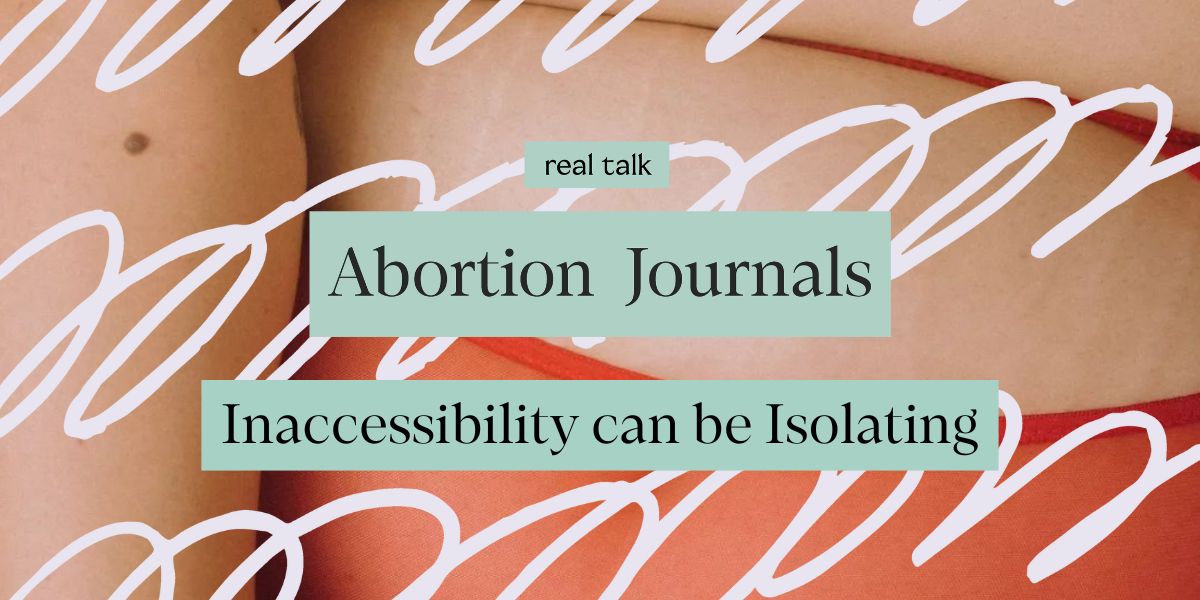In My Words: the girl with the list

Mentioning to someone that I hope to be a mom, one day, has become a sort of litmus-test for friendship – even if they don’t personally want to have kids, I check to see if they react with disgust, or reject how I feel. These conversations, with no one seeming to sit in the middle, have raised one question in my mind – is it ok to be a Gen-z woman who wants to be a mom?
There’s someone on tiktok called the “girl with the list.” She's summoned when a mother tells the world about how she’s feeling, or even just lives, on social media. A crying baby? Girl with the list. Stretch marks? Girl with the list.
I came across a video of a pregnant woman a few months ago. She was dressed in just her underwear, showing her stomach and stretch marks. She was only days away from giving birth. In the caption, she talked about her seventeen-month-old twins. She smiled, wishing they were still newborn-baby-small. It was a nice change to see a happy TikTok on my feed. Then I went to the comments. The comments talking about this pregnant mom’s body
“where's the girl with the list?”
“someone tag the girl with the list.”
“there is no amount of cute baby photos that can erase this horror story from my mind.”
“new fear unlocked.”
“immediately no.”
There isn’t anything inherently wrong with the girl with the list. After all, for many people pro-con lists are a vital part of decision-making. Her list can also serve as a reminder for young people with “baby fever” that having a kid goes far beyond playing-dress up. Some have pointed out that this list stems from a desire to have a sense of autonomy and consent during a time in which reproductive rights are being stripped from those with uteruses in our country, and this perspective undeniably has great value. People have the right to understand exactly what birth and parenthood entails. In this manner, I unequivocally support the list’s mission.
But when does support of informed decision-making step into a disdain for mothers and young people who yearn for motherhood? Many of the women whose videos inspire an item on the list, (which now numbers 304), made their content with the express purpose of communicating the risks and troubles of motherhood that they wish they had been told. Others, such as the mother in the video referenced previously, did not ask for their bodies to be employed as an object of disgust. They did not elect to represent a random numerical value indicating a reason to stay child-free. And yet, they end up on the list.
This discourse has revived my inquiry into my own relationship with motherhood.
When I was ten, I walked into Big Blue Marble (a local bookstore) with my friend, Grace. We made mock-baby-bjorns out of our own baby blankets, and tucked the baby-alive dolls we were so obsessed with inside. We loved to pretend we were mothers, we even thought we had people fooled. My brother and I had grown up playing with anatomically-accurate baby dolls, Ricky and Lucy, gifted to us as toddlers by our parents. We learned to sew and make clothes for them out of felt – Lucy was sewn an eye patch, Ricky a little pair of pants.
I’ve done the 20-year-old equivalent of this today. I've worked at preschools and as a nanny. I got my start in childcare when I was nine. I have the notes app list of baby names. Yet, I still get horrified looks when I tell people that the only aspiration of mine that will never change is to be a mother.
I'm a woman at an Ivy-League university. I've been working and crying and losing sleep all my life for academic achievements — so why do I dream of motherhood and not a career?
I ask myself if this is a response to the crushing expectation of perfection. My stomach feels full with hot bile and a scream when I’m looked at like an unfulfilled woman-in-STEM. Like I could have been used for a headline on university gender equity or 20-under-20, but I’ve made some mistake by pursuing history – not breaking any boundaries there. After being raised in the golden age of “girlboss feminism” I don't want to aspire to be top of my class for the purpose of thwarting the expectations of men. I do the things I do because I deeply want to do them for myself and those I love.
After spending so much, and undoubtedly much more to come, of my young life battling academic and career anxieties, I keep finding myself chasing the joy I felt when teaching a three-year-old girl to speak kindly about her body. The joy I found speaking in spanglish to a toddling bilingual one-year-old. The joy of finding out that the neighborhood girl I taught the alphabet to when I was ten is now a teenager. I somehow feel a part of that.
There is something deeply empowering about motherhood, just as there is the same about choosing against it. Breaking cycles of generational trauma, cultivating love in another person.
The mother rests at the center of the feminism I was raised around – the joy, and privilege, of my mother’s choice to have children, something which could not be said for the preceding matrilineal. The writings of bell hooks have further cultivated this understanding of radical motherhood which dictates so much of my understanding of the mother and the child. As a student studying history, I have to call attention to hooks’ commentary on the place of motherhood in early feminism, in which she stated “early feminist attacks on motherhood alienated masses of women from the movement, especially poor and/or non-white women, who find parenting one of the few interpersonal relationships where they are affirmed and appreciated.”
This isn’t to neglect the dark underbelly of the current of women such as myself who openly discuss their desire to raise children. The traditional wife, or “trad-wife,” movement has demonstrated that, like anything, this may be bastardized and twisted by misogynistic, neo-nazi groups. But we may both recognize the harm of movements such as trad-wifery while affirming the real, valid desire of those who genuinely dream of motherhood.
In a post-Dobbs world, I ask Gen-z to think critically about our language around mothers when we speak of justice. An understanding of choice, in all of its manifestations and nuances, must be clung to. I’m not saying anything new when I say that pro-choice includes choosing to have a child, but the meaning of this choice seems to be on occasion lost in the discourse. Motherhood will continue to exist as a radical act for those who wish it to be.
Keep Reading

In My Words: I never want to be pregnant, but I’d love to be a parent
Sep 20

In My Words: I'm a virgin living in hookup culture
Sep 19

Abortion Journals: I had an abortion before I had my baby
Oct 11










